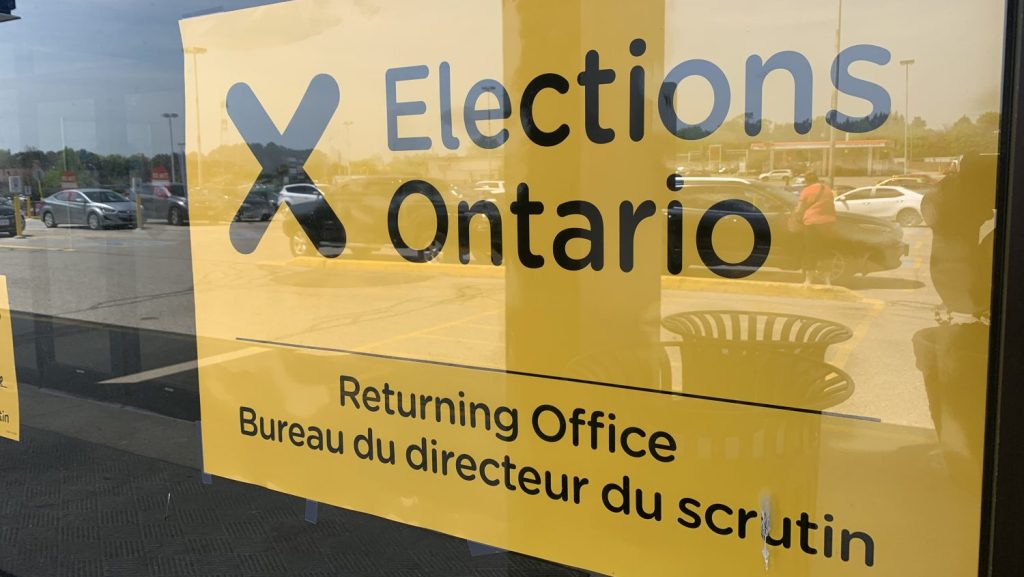Florida Supreme Court OKs new congressional district map, upending political landscape
Posted Dec 2, 2015 02:42:57 PM.
Last Updated Dec 2, 2015 05:40:29 PM.
This article is more than 5 years old.
TALLAHASSEE, Fla. – The Florida Supreme Court approved a sweeping overhaul of the state’s congressional districts on Wednesday, a move that will upend the political landscape ahead of the pivotal 2016 elections.
The justices ruled 5-2 in favour of the new boundaries for many of Florida’s 27 districts. The ruling signs off on the map that Circuit Judge Terry Lewis approved earlier this year, but it immediately came under fire from both Republican legislators and Democratic members of Congress.
The map would likely force Rep. Dan Webster, a central Florida Republican, to move districts to remain in office. It also could also short-circuit Democratic Rep. Gwen Graham’s rising career and would make it harder for South Florida Republican U.S. Rep. Carlos Curbelo to get re-elected.
But the new map is also expected to make it easier for former Gov. Charlie Crist to win election as a Democrat in a reconfigured seat in the Tampa Bay area.
“Obviously this was a historic win for the people of Florida,” said Peter Butzin, chairman of Common Cause Florida and one of the groups involved in the lawsuit that triggered the ruling.
Some hope the ruling will end nearly four years of lawsuits, hearings and special sessions over the districts that have cost taxpayers millions of dollars.
Justice Barbara Pariente, who wrote the majority opinion, wrote that the ruling should “bring much needed finality to litigation concerning this state’s congressional redistricting that has now spanned nearly four years in state courts.”
But the new map could quickly come under further legal attack.
U.S. Rep. Corinne Brown, whose district would be shifted from a north-south alignment to one that stretches from Jacksonville to Tallahassee, has already promised to resume a federal lawsuit against the proposal. She said the map violates federal law by diminishing the voting clout of minority voters.
“Today’s ruling by the Supreme Court of the state of Florida is just what I expected because the entire process has been tainted from the very beginning,” Brown said in a statement.
The groups that sued the Legislature said they are prepared to fight Brown in a court. David King, an attorney for the League of Women Voters of Florida and other groups, noted that Justice James Perry, one of two black justices on the state Supreme Court, wrote a concurring opinion where he rejected arguments that the new map will harm minority voters.
“I understand that it is nearly impossible to remove politics from an inherently political process, and both parties have had the advantages of drawing the lines at some point in history,” Perry wrote. “However, this Court is constitutionally required not to protect any individual incumbent but to protect the interests of each individual voter.”
Florida’s GOP-controlled Legislature, however, might also keep alive the legal fight since legislative leaders had urged the court to reject the map approved by Lewis. Sen. Bill Galvano, a Bradenton Republican involved in redistricting, said the Senate would look at whether it would also challenge the decision in federal court.
Florida voters in 2010 approved the “Fair Districts” standards, which say that legislators cannot draw districts intended to help incumbents or a member of a political party. A coalition of groups, including the League of Women Voters of Florida, challenged the congressional map first approved by legislators in 2012, saying it violated the new standards. In a stinging ruling in July, the state Supreme Court said GOP operatives had “tainted” previous efforts to draw up maps and ordered that eight districts be redrawn.
GOP leaders returned during an August special session to adopt a third map, but they deadlocked over which map to pass. Lewis recommended a map similar to one proposed by legislators, but he endorsed changes to South Florida congressional districts, including Curbelo’s.
While the majority of justices approved the map, two dissented from the decision. Justice Ricky Polston sharply criticized the decision because Lewis had relied on a map that was drawn with the help of a firm that works for Democratic candidates. He said that decision violates the standards adopted by voters that were intended to rid the process of partisan influence.








